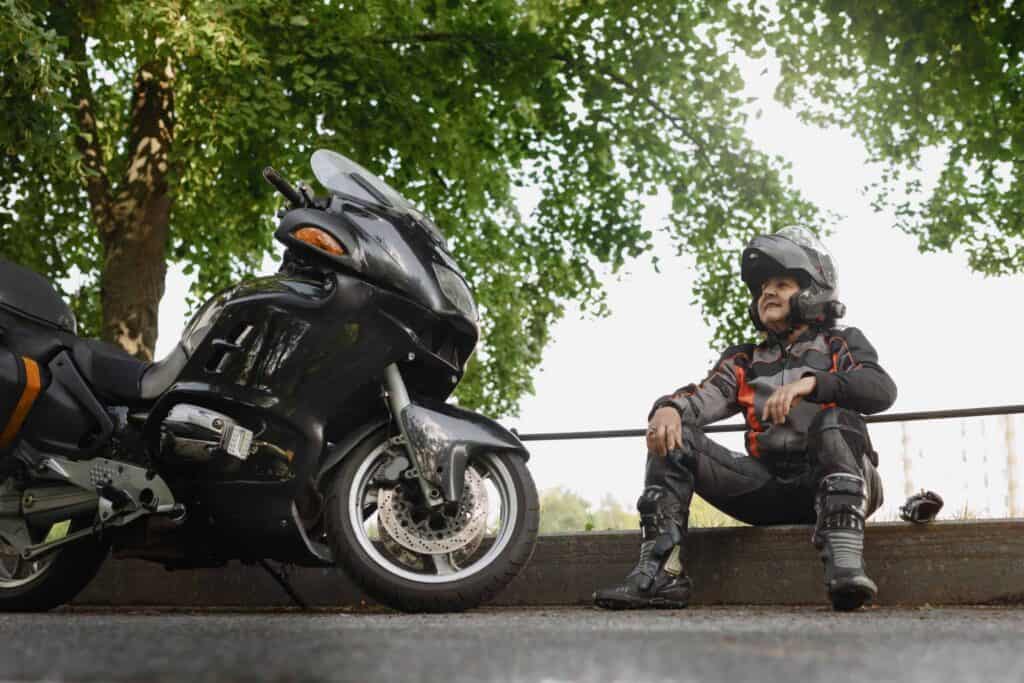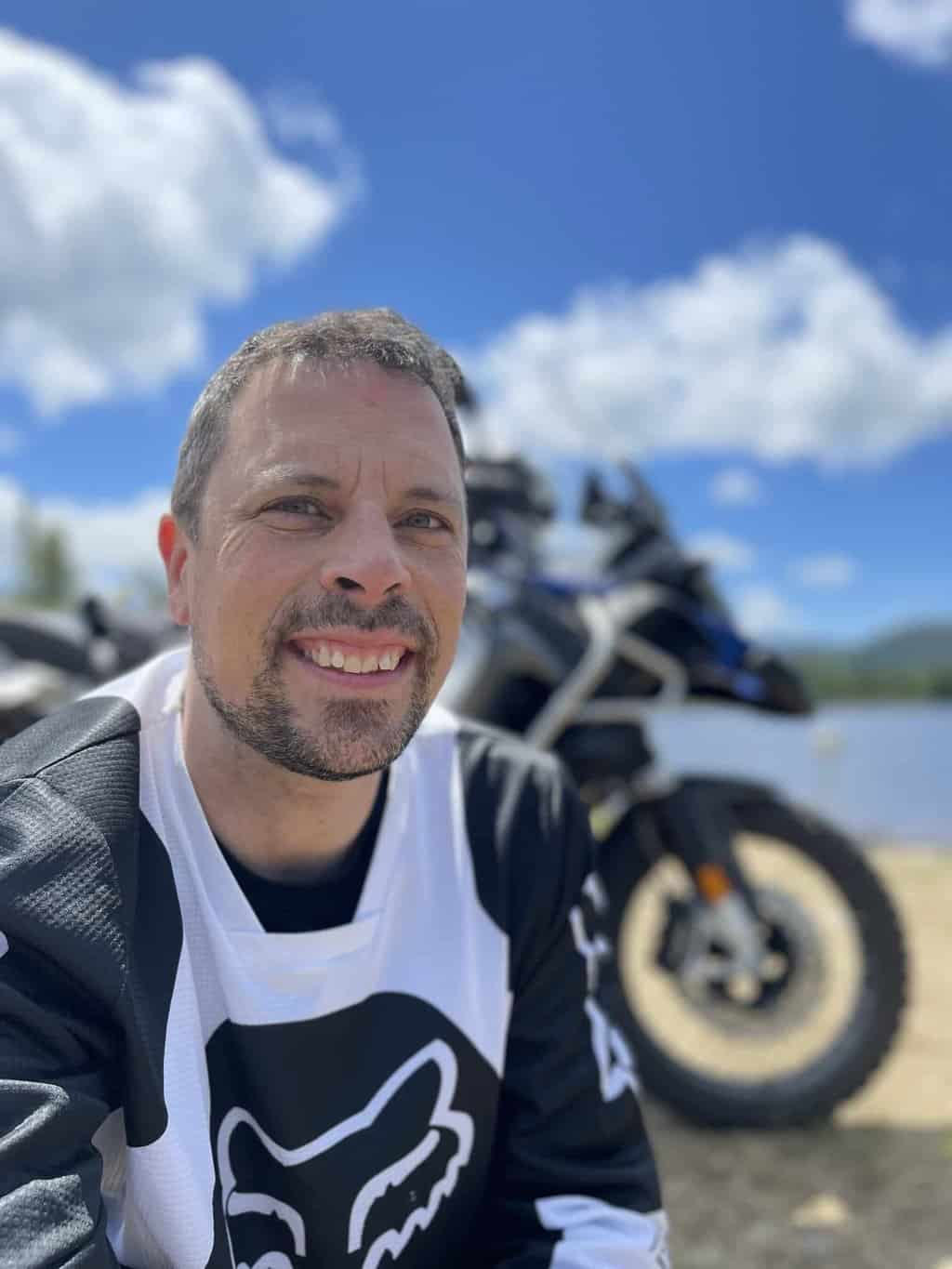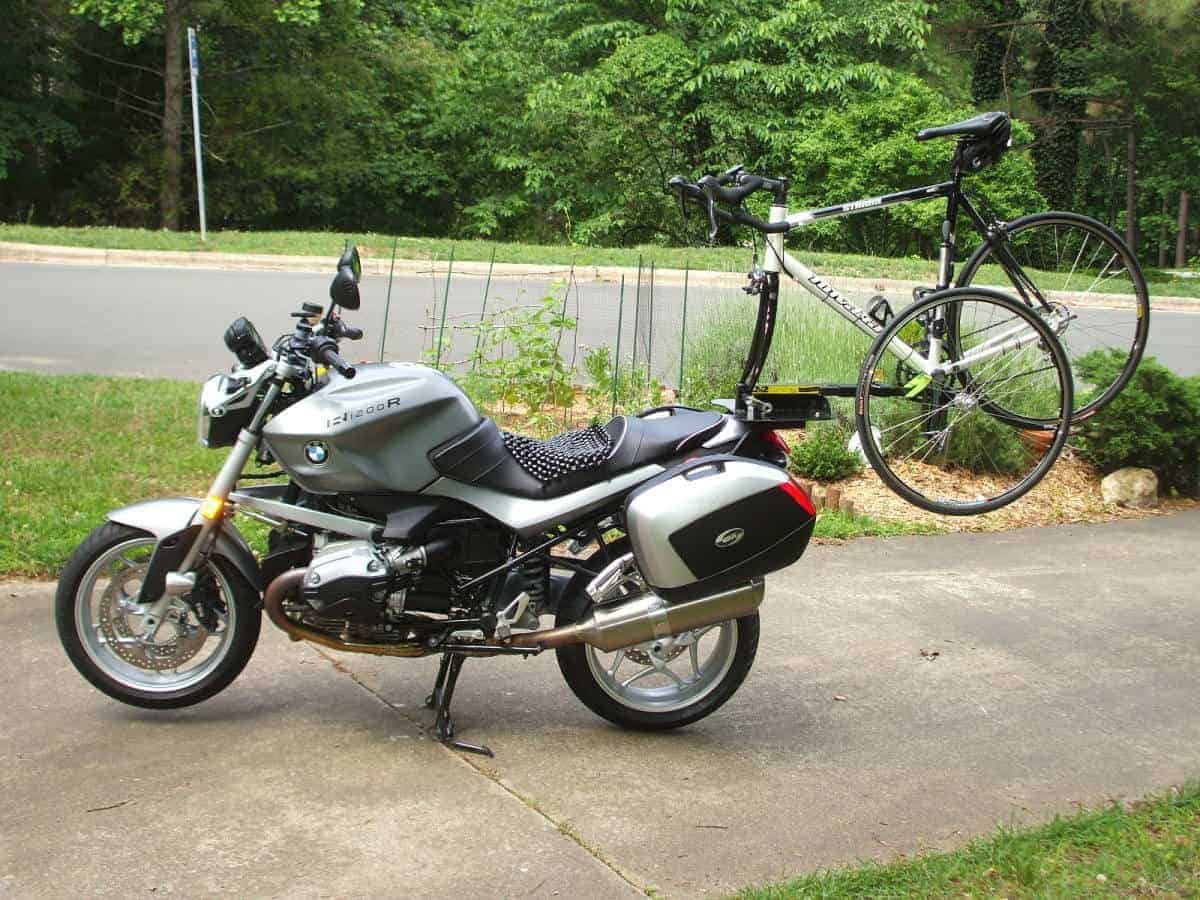When was the last time you have ridden your motorcycle? Has it been a week? A month? Maybe a year? Well, I, too, am guilty of having long periods of not riding my motorcycle. This is how life is, and things happen.
But if you are here, you may be wondering how long is too long, and can you actually forget how to ride a motorcycle?
Once you learn how to ride a motorcycle, you can’t forget how to ride it. Riding a motorcycle is stored in the procedural memory, which is more resistant to forgetting. However, you can forget how to properly use the more intricate controls and details about riding a motorcycle.
Table of Contents
This is an interesting topic, at least for me, that is, so I decided to dig a little deeper and see what the experts say. If you are curious to find out more, continue reading. Below I answer more of the questions you may or may not be asking yourself.

Why you can’t forget how to ride a motorcycle
One of the old ages says that once you learn how to ride a bicycle, you can never forget it, regardless of how long it has been since the last time you have ridden a bicycle.
This sounds like a great thing, but does this also apply to riding a motorcycle?
Before we continue, let me go over why it is considered that once someone learns how to ride a bicycle (or a motorcycle in this case), they can never forget it.
The experts believe this has all to do with how the memories are stored and anchored in the brain.
You see, this is not like forgetting the birthday of a close relative. There are different types of memories, and they are stored in different ways.
Generally speaking, there are three types of memory:
- Sensory memory.
- Short-term memory.
- Long-term memory.
Here the long-term memory will be of most interest, and there are two main types of long-term memory:
- Declarative: Declarative memory further breaks down into (1) recollections of experiences and (2) factual knowledge. The recollections of experiences are exactly what they sound like; those are significant events or experiences in your life that you remember. (Like, for example, the first time your motorcycle tipped over.) And Factual knowledge comprises important facts that you have learned and come to remember because they are important. (Like how much fuel your motorcycle takes before it overfills.) Declarative memory is communicable, which means that you can share it with others.
- Procedural: Procedural memory consists of skills that you have learned. Those can be playing an instrument, swimming, or riding a motorcycle (or a bicycle). Interestingly enough, scientists have found that procedural knowledge is less likely to be lost with time or even after trauma. There are different theories why procedural memories like riding a bicycle are more resistant and less likely to be lost even after more serious traumas. Some hypotheses say that the areas where those memories are stored are more protected, and others argue that fewer neural cells are formed in those areas of the brain as we age, so they are left as is. Another theory revolves around a particular type of nerve cell that can turn electrical signals from the cerebellum into memories in other parts of the brain.
So what does all that mean for you?
It means that the most basic and fundamental aspects of riding a two-wheeled vehicle, or in other words, the balancing on a bicycle or a motorcycle, cannot be forgotten. Once you get the hang of it, it is there to stay. Even after 30 or 50 years of not riding a motorcycle, you will feel a little rusty, but all the knowledge you need will be there.
It is also important to note your previous experience of riding a motorcycle.
How long have you been riding a motorcycle before the pause? Several years or a single year? A month? Or maybe even less?
The more experience you have had, the faster you will be able to refamiliarize yourself. Often even a short 30-minute practice session will be more than enough.
An interesting bit of trivia I can share with you is that even people that don’t know how to ride a bicycle can learn how to ride a motorcycle.
See article: Can you ride a motorcycle if you can’t ride a bicycle?
Is it possible to forget how to ride a motorcycle?
As you can see, it is extremely unlikely to forget how to ride a motorcycle. However, are there cases where you can actually forget how to do it?
Well, yes and no. Let me explain.
It is possible to unlearn how to ride a motorcycle.
Probably the chances of you doing that incidentally are astronomically low as it usually involves consciously replacing or substituting your memories. But there is a little caveat here. A good example can be seen in this short video:
Although the chances of you forgetting how to move on two wheels are very low, what you can forget about riding a motorcycle, though, is the intricate details. How to use the gears properly, the pedals, the breaks, and how the rest of the controls operate. Overall what you can lose are the skill and the reaction time. (This can be very dangerous, so extra caution should be exercised.)
You may need a little time to get used to operating the different control and equipment the way you used to do before.
With that being said, there are other instances where somebody may need to relearn riding a motorcycle. Severe traumas, injuries, including brain injuries, strokes, and other physical issues may impact one’s ability to ride a motorcycle the same way they used to do it before.
In a way, they have never forgotten how to ride a motorcycle, it is just that they cannot do it the same way, and they may need to relearn it.
Can aging cause you to forget how to ride a motorcycle?
Interestingly enough, aging is highly unlikely to cause a person to forget how to ride a motorcycle. They can forget names, birthdays, events, but procedural memories are usually not affected.
According to the experts people suffering from dementia, however, can find their procedural memory affected. Although it is not guaranteed, it is possible for people suffering from dementia to lose their ability to ride a motorcycle or have it severely impacted.
Studies have found that even in patients with Alzheimer’s disease, the procedural memories remain relatively unaffected. (Although it may not be as good as the procedural memory in a healthy adult.)
Well, what about amnesia then? The data shows that amnesia affects the declarative memory, and in most cases, the procedural memory (responsible for knowing how to ride a motorcycle) is not affected.
What happens if you haven’t ridden a motorcycle in years?
If you haven’t ridden a motorcycle in years, the chances you will forget how it is done are very low. The basics of how to move on two wheels are very hard to forget.
However, the controls and the different aspects of riding a motorcycle can be forgotten, or at least you will need more time to get used to using them again.
The chances are you will not be as graceful as before, at least in the very beginning. You will have to give yourself some time. In most cases, 20 to 30 minutes may be more than enough for the old memories and instincts to start coming back to you.
You will not have forgotten how to ride your motorcycle. However, you will not be doing it very well in the beginning as you refamiliarize yourself.
If you are interested in some more specific time frames, you can check my article, where I discuss how long it takes to get good at riding a motorcycle.
What to do if you feel like you have forgotten how to ride a motorcycle?
The good news is that it is extremely unlikely to really forget how to ride a motorcycle. Riding a motorcycle is like riding a bicycle where once you learn how to do it, you never forget. You may feel like you have forgotten how to do it, but you just need a little practice.
In other words, you just need a little brushing up on your skills.
If you feel like you have forgotten how to ride a motorcycle all you need to do is refamiliarize yourself with what it feels like to ride a motorcycle and use the controls.
Pick a quiet time of the day and practice. There are a few things you can do:
- Get to a parking lot and practice those low-speed maneuvers. Parking lots are a great and safe place to practice; they can often offer large areas free from any traffic.
- Pick a few low-traffic streets and gradually increase the distance you reach each day. That way, you will be able to get used to what it feels to ride the motorcycle at high speeds again.
See article: Can you teach yourself to ride a motorcycle?
Make sure to take it easy during the first few rides. This does not mean that you are immediately going to crash while riding your motorcycle. Nonetheless, you will be at a higher risk of crashing.
You can find more information about the odds of crashing with your motorcycle in my article here.
Initially, you may feel a little unsteady, and some nuances like rev-matching or changing gears may feel a bit awkward at first, but after a little time, you will start to feel it coming back to you.
Even experienced riders who may have a decade or two of riding experience under their belt will feel rusty when taking their motorcycle for a ride for the first time after the winter.
And lastly, if you really feel unsure and not comfortable, it may be worth going to a driving school and taking a refresher course.
If you are contemplating the idea but are still unsure, I recommend going over the things I share in my article about whether MSF courses are worth it. I think you will find MSF courses well worth your while.
The best way to not forget how to ride a motorcycle is to ride more often. If you don’t have a motorcycle and don’t want to forget the finer details about riding a motorcycle, it is worth taking such a course every one or two years.

Meet Simon, the 46-year-old aficionado behind YourMotoBro. With a lifelong passion ignited by motocross dreams and a Canadian Tire bicycle, Simon’s journey has been nothing short of extraordinary. From coaching underwater hockey to mastering muddy terrains, he’s an authority in thrill and adventure. Certified as an Off-Road Vehicle Excursion Guide and trained in Wilderness First Aid, Simon’s love for bikes is as diverse as his collection—from a robust BMW GSA R1200 to the memories of a Harley Davidson Night Train. By day a respected telephony consultant, by night a motorcycle maestro, Simon’s tales are a blend of expertise, resilience, and undying passion. ?️✨
